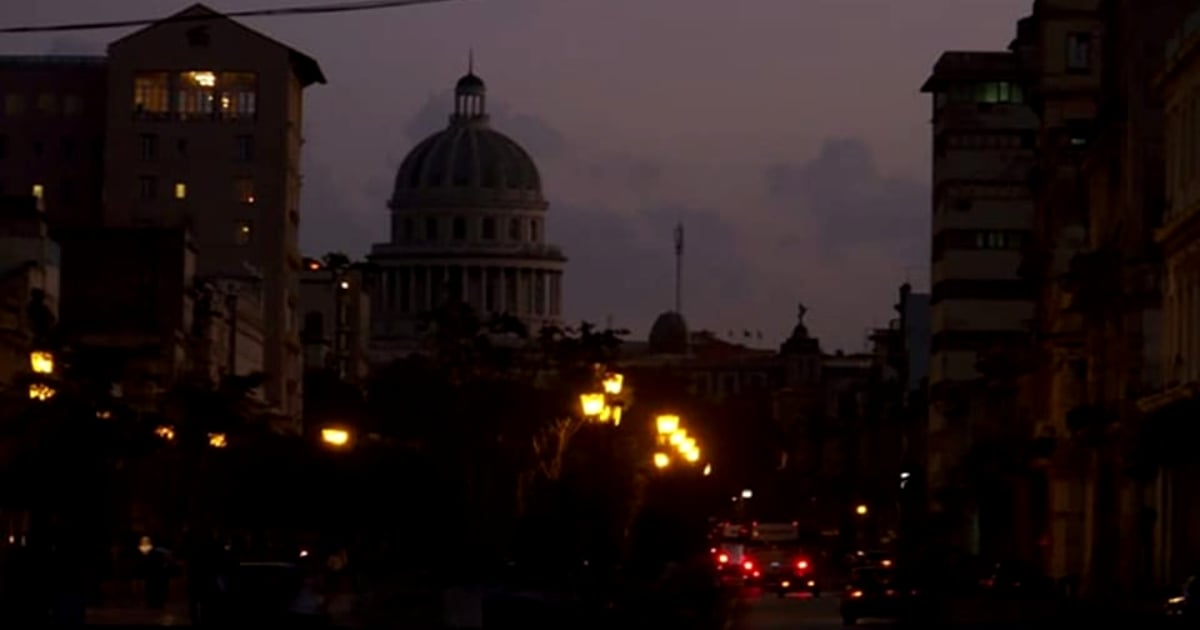The collapse of Cuba's national power grid and a severe fuel shortage have led to a critical week for the country's electricity generation. Starting this Sunday, Havana will see an increase in blackout hours, according to the Electric Company of Havana's announcement on social media this Saturday.
Seen by many Cubans as a privileged area, the capital will now experience extended and more frequent power outages. The “schedule of power disruptions due to generation shortfalls in Havana from September 23 to September 28, 2024,” includes the already established four-hour outages from 10:00 AM to 2:00 PM. Residents in block B4 will lose power on Mondays and Fridays, those in block B2 on Tuesdays and Saturdays, while blocks B3 and B1 will face outages only once a week on Wednesdays and Thursdays, respectively.
However, the Electric Company of Havana warned this Saturday that “due to emergencies from unforeseen generator plant failures,” an additional 12 hours per week will be added for blocks B1 and B4, and eight hours for blocks B2 and B3. The new schedule is as follows:
In total, nearly two million Havana residents will endure: 16 hours of blackouts per week for residents in blocks B1 and B2; 12 hours for those in block B3; and 20 hours for block B4 residents.
Earlier in September, the Cuban government shifted responsibility for the duration and frequency of blackouts to provincial authorities, stating that these variables "are determined locally." According to Energy and Mines Minister Vicente de la O Levy, the factors that provincial officials consider when setting blackout schedules include the impact on water pumping, population densities, consumption levels, and percentage allocations based on demand.
Growing Discontent over Unequal Power Distribution
The unjust distribution of blackouts and perceived privileges of Havana residents have become a major topic of discussion amid Cuba’s energy crisis. Comments on social media, particularly on the Union Eléctrica (UNE) pages, reflect widespread discontent.
In late July 2022, during another peak in the energy crisis, Havana's government announced four-hour blackouts for the capital “in solidarity” with the rest of the country, where people endured up to 12-hour daily outages. Governor Reinaldo García Zapata stated, “In a gesture of solidarity with the country, Havana will schedule four-hour daytime power cuts (from 10 AM to 2 PM) in city circuits, occurring every three days,” during an economic plenary in the capital.
Echoing this "solidarity" approach, then-First Secretary of the Communist Party in Havana, Luis Antonio Torres Iríbar, added, “This is the time to contribute so that the rest of Cuba suffers less from these undesirable blackouts.”
Controversy Over Recent “Solidarity Blackouts”
In late August this year, the “solidarity blackouts” returned to Havana. The Electric Company of Havana announced on Facebook that the capital would experience power disruptions due to an emergency generation deficit in the National Electric System. This measure sparked significant controversy on social media. While Havana prepared for two-hour outages, many provincial residents voiced their frustration, arguing that these interruptions were insignificant compared to the long hours of blackouts they had been enduring for years.
